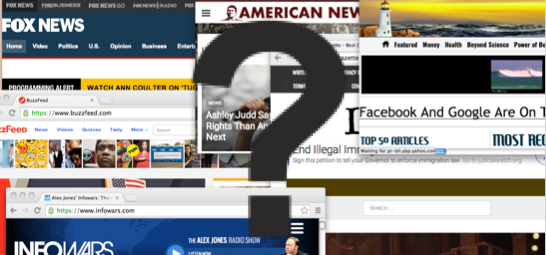‘Fake News’ Talk Forces Media Consumers to Wise Up

High-profile instances of misleading news and an overwhelming number of internet news sources, credible or not, have created a climate of distrust.
June 6, 2017
“Fake news.”
On Jan 11, 2017, President Donald Trump uttered this phrase, and a phenomenon was born. The public has become increasingly familiar with this phrase as the country treads in the unknown territory that is Trump’s presidency. As the phrase establishes itself into the American public’s vocabulary however, the idea of “fake news” is becoming more and more a local issue.
For years, students have been taught how to find reliable sources for research papers and projects in school, but what are they to do when the commander-in-chief discredits the news outlets that have always been considered trustworthy? How are students supposed to stay informed on political issues when they do not know which news outlets to trust?
CHS students are surrounded by political issues and opinions due to our proximity to the nation’s capital. It is important to stay informed with accurate information in such a controversial and confusing time, but this has become harder to do when the trustworthiness of popular and traditional news outlets is questioned.
According to a Dec. 2016 Pew Research survey, 64 percent of U.S. adults feel increased confusion distinguishing facts versus fabricated news.
Sayings such as “fake news” and “alternative facts” may seem like harmless comedy, but the reality behind these ideals is far from laughable. In books such as 1984 by George Orwell, propaganda and lies are the staple of a corrupt dystopian government. With the increase of chaos and decrease of confidence in news sources, it is getting harder and harder to know what is really going on in our government, and our reality is shaping up to resemble an Orwellian society.
“Fake news” may be a new concept inside the US, but in other countries, it has been contributing to confusion for a long time. For example, countries such as Russia have been suspected of making “fake news” about important events like the election, designed to attract the attention of Americans.
According to a 2017 March New York Times article, the Senate Intelligence Committee is looking into perhaps 1,000 Russian internet trolls creating fake news and targeting swing states during the 2016 election.
For a majority of US citizens, whether it be radio broadcasts, print newspapers or news shows, media is their only connection to the world outside of the USA. If there is a credibility issue regarding major news sources, this will influence how everyone in this country views international affairs. However, fake news is also an issue that has impacted the US internally, in their elections of political figures and the implementation of specific policies.
Fake news is not only confusing for the public, but also can be dangerous. For instance, the false story that the Comet Ping Pong restaurant was involved in child sex-trafficking caused a North Carolina man to fire shots inside of the restaurant. The misinformation of the public is not completely harmless, and if it continues, there is no knowledge as to how far the danger will go.
Additionally, fake news can perpetuate the wrong ideas of organizations and people. An example is two California anti-abortion activists created a false video that made it seem that Planned Parenthood sold and profited from fetal tissue. In reality, Planned Parenthood does nothing of the type and has filed a lawsuit against the activists. However, this video has affected how people view Planned Parenthood, despite the false claims.
Despite the dangers of fake news, people are finding ways to look more closely at what they are reading and know if it is true. Not all people are helpless in the face of questionable credibility, but the problem is that few seem to care. Many people still do not understand that fake news is something that affects everyone.
A solution to this epidemic has been seen in many social media communities, which is information, or classes, that help people find out how to avoid fake news. The prominent website and app Facebook is working with The Associated Press, FactCheck.org and other organizations, to curb the amount of false news that is on its network.
Not only does the spread of fake news make it harder for CHS students to find reliable sources for school projects, but it affects the way they view what is happening in the world
High school students are the future, and they have a right to know what is happening in their country and government. It is important for young people to stay updated on current events, but that is becoming harder and harder to do with the decrease of credibility and increase of confusion.
Even though the phrase “fake news” has become a satirical refute to something one disagrees with, the reality is that America is sliding down a very slippery slope that will lead to misinformation of the masses, and we are sliding fast. Two words that have carried their influence across the country are exposing how little we really know.

